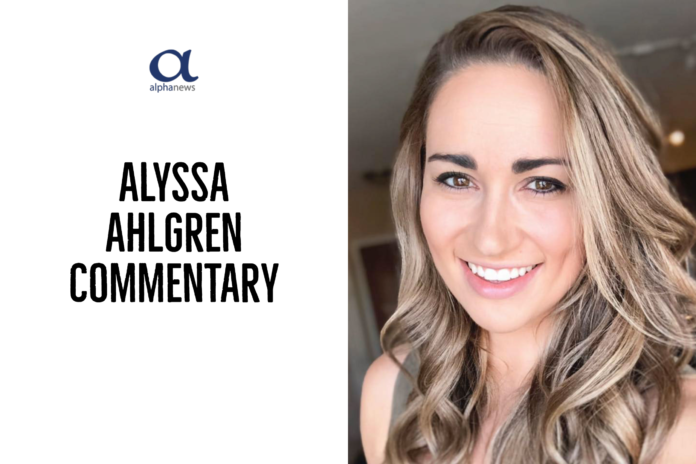Over Thanksgiving I watched the movie “Hillbilly Elegy” on Netflix. It’s the adaptation of J.D. Vance’s book of the same title, which highlights his life as a Yale Law student reflecting on his family history and life growing up in Appalachia. “Hillbilly Elegy” is an inspiring true story of how anyone can determine their own fate in America regardless of circumstance; and the left absolutely despises it.
One thing you should know about me: I’m a terrible movie watcher. Like many people, predominantly young people, I have the attention span of a goldfish. I cannot simply sit there and watch a screen, unmoving. I go on my phone or my computer while simultaneously doing my best to absorb the movie just enough to get an understanding of the premise. Rarely is a movie captivating enough to not sway me to reach for my phone. Let me tell you, during the almost two hour film, I didn’t feel the urge to scroll through Instagram or read my DMs. It may not sound like much, but for a horrible movie watcher like myself, that’s huge.
I am partial to movies based on true stories, particularly inspirational ones. Stories that remind us that we are the captains of our own ships and the masters of our destiny. Stories that are an example of what human beings are capable of in a country of limitless opportunity and unbound freedom. J.D.’s story serves as that example.
When the movie concluded I felt an overwhelming sense of gratitude, humility, and pride for this incredible land of opportunity. So naturally, I assumed this film received horrible reviews. I have a rule of thumb when it comes to picking which movies to watch. If the pretentious, hyper-progressive denigrators known as movie critics hate something, then I know it’s a good movie worth watching. If the movie critics love something, then I know the movie is unoriginal, virtue-signaling, leftist propaganda. “Hillbilly Elegy” was no exception to this rule.
It’s also interesting to note that the “critic score” and “audience score” are almost always polar opposites. Critics on Rotten Tomatoes rated the movie at 25%, while the audience gave it an 81%. See what I mean? I mustered up the mental strength to read the reviews of the film in publications like Vanity Fair, Vox, and The Atlantic. Essentially, every repository of all things woke that were, of course, the first hits on Google.
Every review echoed the same sentiments — “white poverty and struggle doesn’t count” and “you cannot simply lift yourself up through individual decisions and self-determination.” First, the left sees poverty as a racial monolith — the only poverty that exists, or should be recognized, is the poverty that afflicts people of color. The left views America as one pervasive power dynamic — the oppressed versus the oppressor. Disenfranchisement of anyone harboring the characteristics of the oppressor (i.e. white, straight and male) is viewed as inconsequential.
To concede that poverty and hardship fall upon even the most “racially privileged” is a concession of the racial power dynamic on which the entire progressive narrative rests. Therefore, J.D.’s remarkable feat of overcoming his Appalachian roots and family turmoil to become a Yale Law graduate was just the fulfillment of an inherent systemic advantage granted to him by the pigment of his skin rather than the ownership of his autonomy. In accordance with leftist law, white poverty is an uncoerced occurrence that is irrelevant to the American saga.
Second, there’s nothing the left hates more than the concept of the “American dream,” the idea that anyone, no matter their background, can rise above their circumstances and build a successful life in America. “Rags to riches” stories, inspiring tales of overcoming adversity through our own merits, and accounts of achievement only made possible due to the liberty provided by American ideals run counter to the progressive narrative of a systemically oppressive America.
The most vindictive, abusive, and regressive thing you can do to someone living in the freest, most opportunity-filled country on earth is tell them that no matter what they do, their future is not dictated by their own decisions but by external forces of power that exist only to keep them down. Generations of children are being raised to think self-agency is a mere myth. Children are being taught to fail because failing is the inevitable outcome. And the ones who don’t fail are only beneficiaries of luck, the unlikely exception in the cycle of victimhood.
We live in a country that has produced more success stories from minority groups and people of color than any other nation on earth. We live in a country where from 2018-2019, the median household income rose by 6.8% — the largest income increase in history — while the Black median household income shattered that historic milestone and rose by 8% that same year. We live in a country where some of the most influential, wealthy, and prominent voices are black — Oprah Winfrey, Lebron James, Barack Obama, Beyoncé. Self-agency, not skin color, is the determining factor in the outcome of your story.
Like with all things in life, two things can be true at once: we can acknowledge that the United States is home to equal opportunity for all and that we are not all equal in our circumstances. The fundamental rules are the same, but the inevitable and unpredictable nature of life will also play its part. We are born into varying environments but operate under the same promise. The promise that we are all, irrespective of our intrinsic characteristics, rulers of our fate through the free-will endowed to us by our creator and protected by the binding document of liberty that built this land of endless possibilities.
Life is unfair. It can be cruel and unforgiving. No country, government, or system can alleviate that unfairness. What it can do is establish a structure that makes personal responsibility the single greatest tool in determining our future. We may not be able to control where we start, but we can control where we end. To teach otherwise is a poison to society created from a false premise. Just because you were dealt a bad hand in the first round doesn’t mean you get up from the table. You have an entire game to play to turn it around.
Not everyone will be a J.D. Vance, but anyone can be.
Alyssa Ahlgren
Alyssa has her Bachelor’s in Business Administration and currently works as an analyst in corporate finance. She grew up in northern Wisconsin and is a former collegiate hockey player. Alyssa is pursuing her passion for current events and politics through writing and being an advocate for the conservative movement.


















